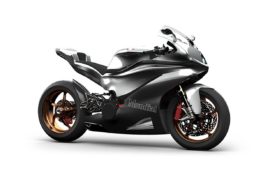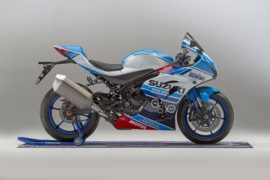If you happen already to own one of the 2017 Ducati 1299 Panigale models, including the recently released Ducati 1299 Panigale R Final Edition and Ducati 1299 Superleggera models, then you already have the latest and greatest electronics suite from the Italian manufacturer, dubbed the Ducati Traction Control EVO (DTC EVO).
But, if you own a 2015 or 2016 Panigale, whether it be a “base” model or “S” model, you have been out of luck when it comes to taking full advantage of your bike’s Bosch inertial measurement unit (IMU)…until today.
Ducati is announcing that it will retrofit its DTC EVO system for older 1299 Panigale machines, so they can take advantage of IMU’s ability to manage sliding the rear wheel, via a revised algorithm.
Sensing both the rear wheel spinning and the body of the motorcycle moving along six axis (five measured, one virtually – X, Y, & Z along with roll, yaw, and pitch), the DTC EVO system adjusts the Panigale’s throttle body valves, spark ignition, and injection advance to modulate power, often without the rider noticing the intervention.
According to Ducati, simpler types of traction control detect only rear wheelspin, and then adjust their intervention to hold the wheelspin in check. When optimal grip is re-established the traction control system reduces intervention, until spin re-occurs and the cycle repeats.
If you graphed this intervention, you would see an oscillation around a theoretical “ideal intervention line” which represents the traction limit.
The DTC EVO system (and other IMU-powered traction control units) however, reduces the magnitude of those oscillations, making the system operate closer to the perfect intervention line.
httpvh://www.youtube.com/watch?v=wqQwpFwS1mM
Source: Ducati




